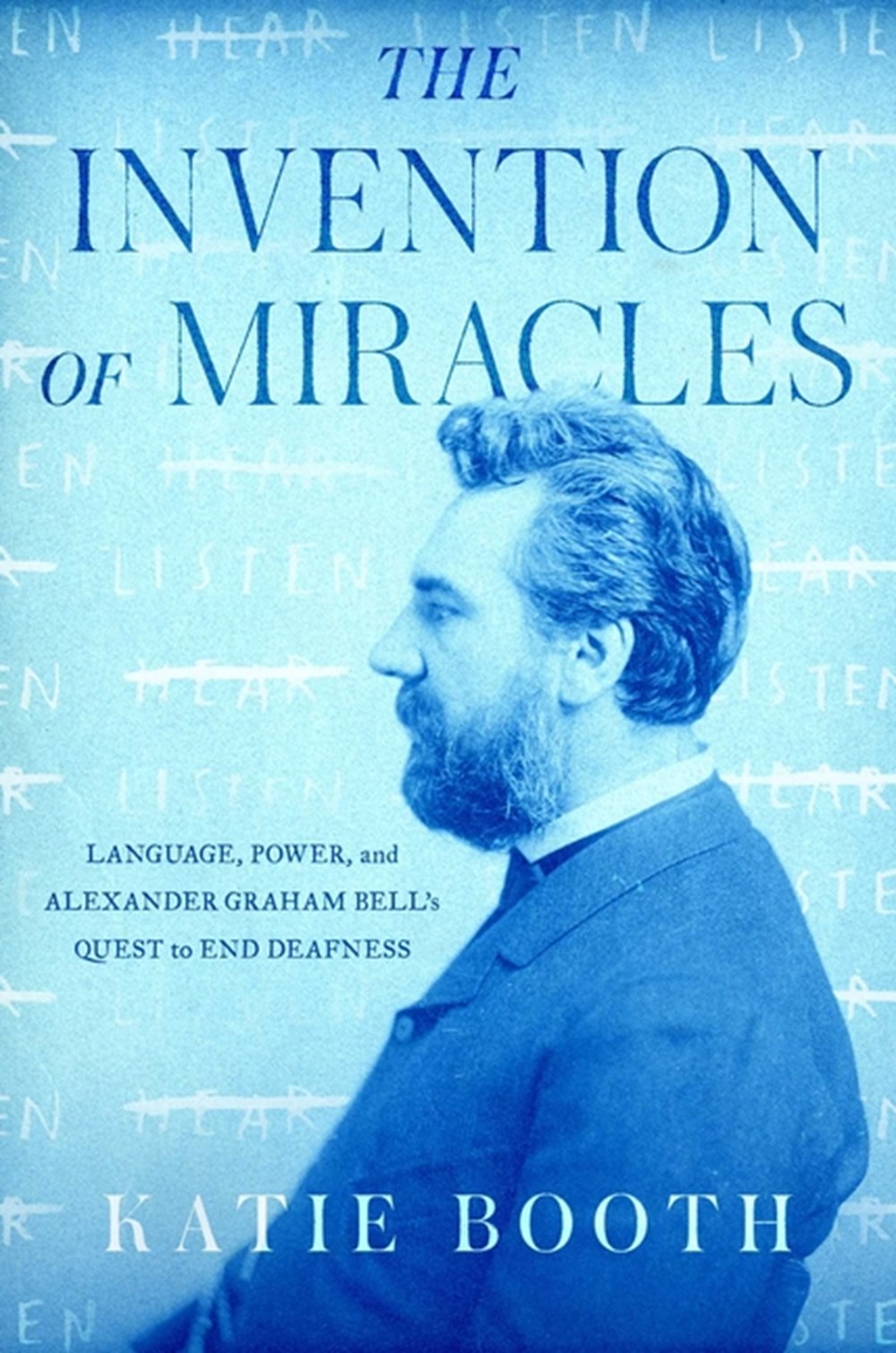The Invention of Miracles
ADVERTISEMENT
 In most American grade schools, students learn about Alexander Graham Bell, the inventor of the telephone. But that is not the way Alexander Graham Bell saw his own career. Bell’s life’s work was the education of the deaf. In fact, his famous invention was in many ways a mere byproduct of his lifelong quest to teach the deaf to speak. And yet by the end of his life, despite his best efforts—or perhaps, more accurately, because of them—Bell had become the American deaf community’s most powerful enemy.
In most American grade schools, students learn about Alexander Graham Bell, the inventor of the telephone. But that is not the way Alexander Graham Bell saw his own career. Bell’s life’s work was the education of the deaf. In fact, his famous invention was in many ways a mere byproduct of his lifelong quest to teach the deaf to speak. And yet by the end of his life, despite his best efforts—or perhaps, more accurately, because of them—Bell had become the American deaf community’s most powerful enemy.
The Invention of Miracles is an extraordinarily revisionist biography of the life of Alexander Graham Bell, shedding light on a forgotten and vital piece of history. Katie Booth is a talented writer and drew from her personal experiences growing up in a mixed hearing/deaf family to research and bring to life the story of, as New York Times bestselling author Walter Isaacson puts it, “great love, innovation, personal drama, and the unexpected consequences of good intentions.”
Bell’s childhood uniquely trained him to become an excellent elocution teacher. He was raised by a deaf mother and his father created Visible Speech, a system of phonetic symbols to represent the position of the speech organs in articulating sounds, which Bell used to teach his deaf students how to speak. Through his work in deaf education, he met and fell in love with his wife, Mabel, who had become deaf due to illness at a very young age. His work led him to become a leading advocate for the oralist movement which valued teaching deaf students how to speak English verbally and shunned the use of American Sign Language—in spite of growing evidence that this led to the detriment of all other learning, causing not only stalled development, but also social isolation.
In Booth’s poignant and powerful prologue, she draws in the reader immediately with the heartbreaking story of her grandmother’s last days, unable to communicate with the doctors and nurses at the hospital who could not (or would not) provide an ASL interpreter. She knows firsthand the harm that her grandparents and other relatives experienced as a result of Bell’s movement to stamp out American Sign Language. The Invention of Miracles is the result of fifteen years’ worth of research, as Booth pored over Bell’s papers, Library of Congress archives, and the records of deaf schools across America.
In the end, The Invention of Miracles is not just a biography but an account of the dawn of a civil rights movement and the triumphant tale of how the deaf community reclaimed their once-forbidden language. Reading this book as a hearing person will completely overturn everything you thought you knew about language, power, deafness, the telephone—and Alexander Graham Bell.
ABOUT THE AUTHOR
Katie Booth teaches writing at the University of Pittsburgh. Her work has appeared in The Believer, Aeon, Catapult, and Harper’s Magazine, and has been highlighted on Longreads and Longform; “The Sign for This” was a notable essay in the 2016 edition of Best American Essays. Booth received a number of prestigious fellowships to support the research for The Invention of Miracles, including from the Library of Congress and the Massachusetts Historical Society. She was raised in a mixed hearing/deaf family.
The books for this giveaway are being provided by Simon & Schuster.




